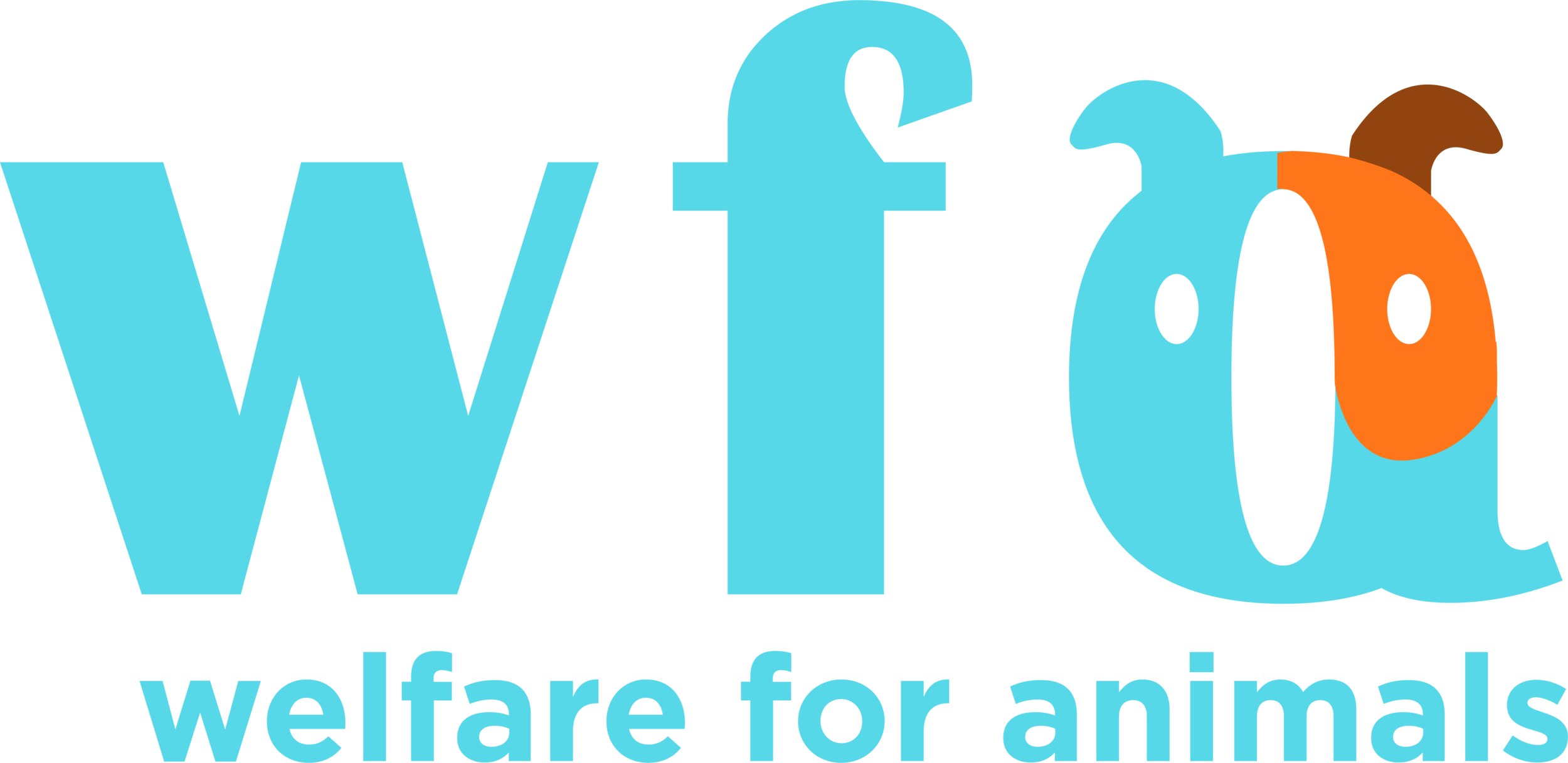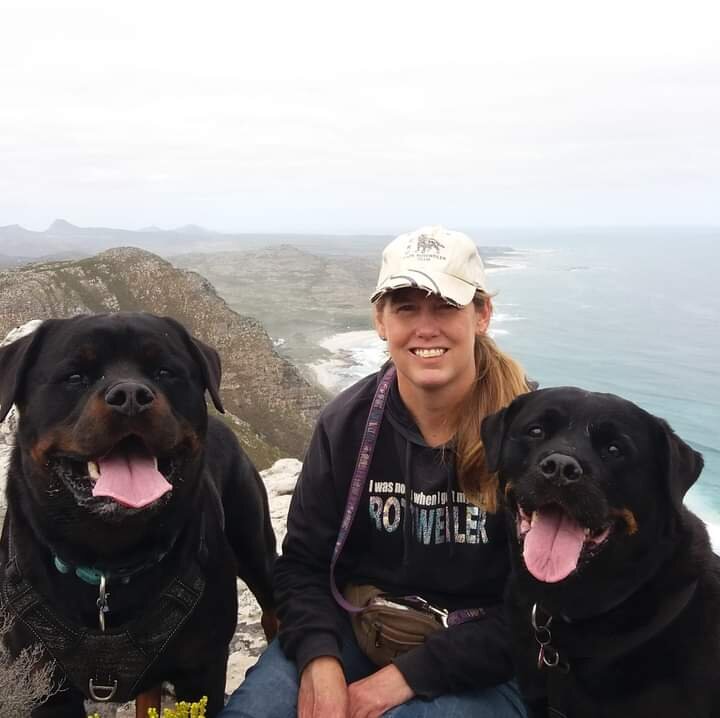ICAN- Taryn Blyth- Ask the Trainer
A little-known fact is that Ruby, the founder of WFA, is also the social media manager for ICAN (International Companion Animal Network). What is ICAN? Why is it important for animal professionals? Learn the answers to these questions, what ICAN stands for and how you can be a part of ICAN. Learn from Freya Locke and Taryn Blyth- the two ICAN co-coordinators -about their amazing work with ICAN and their own businesses.
On August 23 we wrote Part 1 of this series featuring Freya, which you can read here.
This month is Part 2 of the WFA’s Ask the Trainer’s feature on ICAN-where we are learning about Taryn Blyth, her fantastic work in South Africa with dogs, her work helping a humane education programme, her role as ICAN Co-Coordinator alongside Freya, and a very special horse named Jedi.
Who Are You? What Are your roles in ICAN?
My name is Taryn Blyth. Among other qualifications, I completed the COAPE Advanced Diploma in the Practical Aspects of Companion Animal Behaviour and Training in 2013 (DipCABT Advanced Diploma - OCN UK) and lectured the diploma and later the EMRA Advanced Diploma here in Cape Town until 2019. I started Kommetjie Canine College in 2009, where I instruct various group classes from puppy socialisation to Advanced Trick training. I also run courses online, focusing on understanding the emotions of dogs and building better relationships with them.
My role in ICAN is as one of the Co-coordinators, along with Freya Locke. We handle all new applications for membership and monitor the general running of the organization and social media groups, while Ruby does the bulk of the work with posting content.
On a more personal level, I live in Cape Town, South Africa, in a small village bordering Table Mountain National Park. I have two Rottweilers, mom and son Rosie and Cruz, and acquired a very special horse, Jedi, who I am completely in love with, just over a year ago. I adore my dogs and in addition to working and competing with them, spend many happy hours hiking with my husband and our furry kids. I am never happier than when I am with my human and animal family members, enjoying nature.
Taryn recently adopted a horse, Jedi, and has been having great fun introducing him to clicker training - here is an example of some of the things they've worked on together for Rally Free Other Species.
Taryn and her two rottweilers, Cruz and his mom Rosie
Tell us more about your work
Although I spent many years consulting, running classes and doing shelter work, over the last few years I believe I have found my niche and identified the areas where I can make the most difference: I focus on puppy and adolescent classes, with an emphasis on owner education, as I would rather prevent problems early on, than have to “fix” them later on. I also absolutely love providing an environment for my advanced class clients to bond with their dogs, learn the more technical aspects of training and just have a whole lot of fun working and playing together. I have also started to focus more on education with my online courses and am loving engaging with people from all over the world as they gain insight into how dogs learn and a deeper understanding of canine emotions and welfare needs. I have also recently joined forces with Red Hill Animal Rescue to start a dog training and humane education programme for children and dogs from our local informal settlement. This is such a joy to be a part of and I hope that the kindness shown in our use of positive reinforcement will have far-reaching effects on the lives of these children and their community.
Do you have any courses or events people can join?
Taryn and her adorable adopted horse Jedi
All the services I offer are listed on my website: https://www.tarynblyth.co.za/ I currently have online courses which anyone around the world can enrol in, including “Understanding Your Dog’s Emotions”, “How to be the Best Trainer for Your Dog”, “Understanding, Preventing and Managing Aggression”, “Emotional and Physical Safety as a Behaviourist or Trainer” and my “Rally Free Crash Course”. A course on understanding learning theory is in the works!
How do you use your experiences and qualifications in your role in ICAN?
I have worked in many different settings: in group classes, rescue organisations and shelters, clients’ homes, teaching students and even at a dog club. I think this has given me a wide range of experience and exposed me to many different aspects of the companion animal “world”. I have also served on several committees and so learned to work with others. I don’t like conflict and so am always looking to find solutions and ways for people to get on and resolve problems. Somehow, in the years I spent consulting at a local shelter, I was always asked to play mediator between staff and volunteers and I can remember often joking with my husband that I could probably negotiate for peace around the world. On a more serious note, I think studying through COAPE, an education provider which was ahead of its time in placing emotionality at the centre when evaluating and understanding animal behaviour, has given me a really solid foundation to evaluate new and emerging trends in the fields of behaviour and training and to stay grounded and discerning in a rapidly evolving field.
One of Taryn’s passions is trick training with her own dogs for enrichment - here is a fun video of tricks with targeting.
Tell us more about ICAN’s code of practice and how it affects members
At ICAN our motto is “Welfare First”. We believe that the physical and emotional welfare of companion animals must be our first priority in all our work, and we expect all ICAN members to have the same ideals, choosing only to use training and behaviour modification interventions that promote positive emotions. We also expect ICAN members to treat each other with kindness, courtesy and professionalism.
The ICAN code of practice can be found here: https://companionanimal.network/code-of-practice/
Why is transparency, regular CPDS and honesty regarding members’ skillsets, qualifications and capabilities so important for ICAN?- and how do you apply this in your daily work?
Our field is constantly growing and changing – it can sometimes feel hard to keep up! CPD and continuing education are so important to keep us fresh, inspired and to help us give the absolute best to our clients and their animals. We want the ICAN brand to mean something and for people who identify with us, to be on the same page. Every new ICAN member is vetted (we ask questions, view social media and website business pages) to ensure that they align with our ethos, and we would feel comfortable referring others to them.
Taryn and her two gentle giant rottweilers
Why is it important to have an overarching network for different organizations to join?
Companion animal fields are huge and diverse. For someone just starting out or trying to grow a business, it can be a little overwhelming and one can feel quite lost when looking for support or for like-minded people. By having an organisation with a clear and simple ethos for different organisations who all align with that ethos to join, it gives people a feeling of belonging to a community and being part of something concrete they can turn to for guidance and support. If you don’t provide a particular service a client needs or are in the wrong area geographically, it is wonderful to be connected to colleagues all over world who you can easily refer them to, knowing that they will be taken care of in a professional and compassionate way. It is also a great opportunity to create a visible force for moving towards force-free and needs-based handling and training of animals, that will hopefully draw others to start considering a move in this direction.
How can certified individuals, charity organizations, trainers, behaviourists and vets be involved in ICAN?
Anyone who agrees with the ICAN code of conduct and works with companion animals professionally, can apply for membership and join our community.
Application information is here: https://companionanimal.network/join-us/
Tell us more about some of ICAN’s unique members!
We have many members, but one that stands out for me is the charity organisation member “Funda Nenja” which has a “One Welfare” approach, holding dog training classes to teach animal welfare and provide psycho-social therapy for children living in Mpophomeni, Kwazulu Natal, South Africa. The results of this programme are just amazing and an inspiration to us all.
Learn more about Funda Nenja and their phenomenal work here
What are your thoughts on the next steps for ICAN?
As we move forward, we will be looking at more ways to provide support and engagement with our members. In addition to our “Get To Know” interview series, we will be looking at providing educational webinars from members and to other members, as well as starting a newsletter featuring members and their work. We would really like to provide a platform for people to get to know each other, find support, access CPD and be able to showcase their work.
Take a look at ICAN’s Get To Know LIVES at ICAN YouTube channel here.
ICAN’s latest Get To Know LIVE with ICAN member Mair Franklin and ICAN Co-Coordinator Freya




